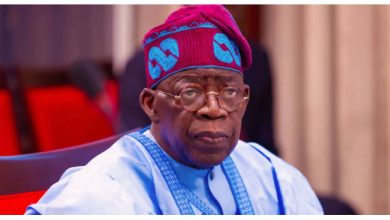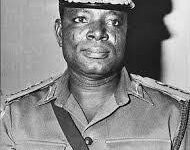Amazing Nigeria, Amazing Dangote

By SALISU NA’INNA DAMBATTA
Whenever Nigerians discuss their country, they express extreme views – gloomy now, gloomy future; energetic show of happiness and grand hope for a bright and prosperous future. This conflicting and contrasting attitude makes Nigeria an amazing country, with amazing people. Life is hardly dull in Nigeria.
When economic, political or security crisis emerge in the country with apparent intensity, wishful thinkers and speculators in the guise of intelligence specialists will vainly name a terminal date for the federal Republic of Nigeria and a subsequent humanitarian crisis for its over 200 million people. Incredibly Nigeria survives.
The doomsayers repeatedly list all the indicators of a failing state and wickedly attribute them to my country, implying that it will disintegrate. Their assumptions invariably turn into ashes. Resilient Nigeria continues to flourish, perhaps in a condition, like all existing nation-states, that needs improvement.
Nigeria has amazing citizens who dare and win for the country. Their winning ways raise realistic hope for, and often bring, actual improvement. These amazing Nigerians are in the academia, in journalism, in sports, in the creative industry, in politics, in the military, in the medical sciences, in the fields of technology, in diplomacy, in agriculture and in the economic, financial and industrial spheres.
Alhaji Aliko Dangote, born in Kano on April 10, 1957, is an amazing industrialist. He built and leads a multi-trillion Naira amazing Business Empire from scratch. He is among Nigerians who make Nigeria an amazing country.
It is fascinatingly amazing that right from his micro business days, Aliko Dangote was an employer and a job creator for children of his age. He was investing his pocket money in buying sweets in bulk and distributing it to youngsters who sold it in the streets of the ancient city of Kano.
Fast-forward to today’s roles of Alhaji Aliko Dangote in making Nigeria an amazing country. His amazing role in the manufacture of cement in Nigeria has improved the habitability of homes. Dwellings constructed by sticks and corn stalks in every part of Nigeria are now gradually being transformed into durable, comfortable and safer dwellings using Dangote cement. Amazingly, Dangote cement is fast-selling at Nkalagu, home to Nigeria’s first cement factory, in Ebonyi state.
Millions of Nigerians dwell in homes built using Dangote cement; they sweeten their tea, gruel, or pap with sugar from the Dangote Sugar Refinery; they make their stew and soup tasty by adding Dangote Salt or Dangote Classic Seasoning. Fuel from his 650, 000 barrels per day crude processing plant will soon power agricultural tractors, articulated trailers, locomotives, airplanes, vessels and most on-site power generators. The rice they enjoy, maize flour for their tuwo and the vegetables in their egusi soup could have been fertilized with urea from his fertilizer factory. His influence on the daily life of Nigerians, regardless of class and location, is amazingly pervasive.
The availability of products manufactured by units of Dangote Industries in all parts of amazing Nigeria is now overshadowed by his boldness to go into crude oil refining in an amazingly big way. He used a missed opportunity to buy, own, turn-around and make the Kaduna Petrochemical and Refining Company functional as a stepping stone. He bravely invested over USD20 billion in building an oil refinery larger than any in Europe and Africa. This demonstrates an amazing single-mindedness and strong will to spot and grab a big and rare, opportunity.
The Dangote Refinery will amazingly contribute in minimising or ending the importation of white products from abroad. It is envisaged to generate an annual revenue of USD $21 billion and employ at least 100, 000 breadwinners. Even without the refinery, the Dangote Group reportedly employs 33,000 workers. Alhaji Aliko’s habit of creating jobs for others has now gone far beyond the few youngsters who sold sweets for him in the streets of Kano.
*Salisu Na’inna wrote from Dambatta








